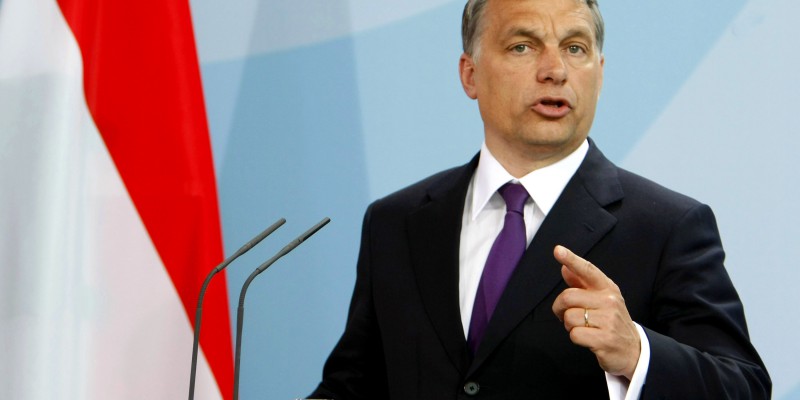2010年ハンガリー首相はすべての民営メディアの過度な管理権限を政府に与える関連法を可決したと、オックスフォード大学シニアリサーチフェローのPeter Bajomi-Lazarが伝えます。

ヴィクトル・オルバーン首相を党首とするハンガリーの新しいキリスト教保守派政府は、2010年政権確立直後に同国のメディア構造を組み替える関連法を可決しました。この新法は野党や専門職団体などへの相談なしに可決され、与党であるフィデス党によって派遣されたメンバーからなるメディア協会が指揮する機関を設立しました。同協会の会長は首相によって直々に任命されました。この機関は出版、ラジオ、テレビ、インターネットを含むすべての民営メディア会社の監査をする他、放送頻度を決め罰金を科す、財源を分配する権利を有しています。
又、この新法はハンガリーテレビ、ハンガリーラジオ、ドナウテレビ、ハンガリーニュースエージェンシーを含むすべての公共メディアを総括する公共サービス機構も設立しました。この機構の会長は前出のメディア機関によって派遣されます。すべての公共放送のニュース告示は国のニュースエージェンシーによって現在作成されており、与党に対して好意的な報道をしています。公共放送に携わっていた多くの編集者や管理者はすでに解雇されており、フィデス党支持者が後任として選出されました。新しい管理体制は首相が直接9年の期間選出したメディア協会会長であるAnnamária Szalaiに最高権限を託しています。
フリーダムハウスによる移行国家についての2011年レポートは、同メディア関連法が「テレビ、ラジオを含む公共放送の独立性を劇的に削り、報道メディア、出版社、インターネットを管理する新しい権力団体を設立した」と記しています。また、この動きを「メディアに対する政治権力の懸念を招く密集」だと説明しています。EUなどの国際機関の圧力に応えて、物議を醸しだすいくつかの条項は改正されました。しかし、これら改正はメディア協会の構造、また新しく設立された公共放送の監視体制を変えたわけではありません。























reply report Report comment
Realmente asusta pensar que hoy día un gobierno pueda tener incluso un mínimo control sobre cualquier forma de periodismo. El presidente húngaro, Viktor Orban, lleva un par de años dando muestras de una serie de ideas. discursos y reformas no ya conservadoras, si no cercanas a las de su homólogo bielorruso, presidente de la”última dictadura en Europa”. Si no fuera por la trascendencia de esta y otras de sus decisiones, esto podría pasar por cómico. Básicamente, anuncia que va a controlar la prensa, con todo lo que ello conlleva. La libertad de prensa es la libertad de un país, y sin ella un país como Hungría dará un enorme paso atrás en su camino democrático. Asusta, da miedo, la proliferación de éste y otros líderes democráticos por todo el viejo continente, que con ultra conservadoras ideas como ésta atraen inexplicablemente la atención de muchos votantes en un periodo de “crisis” (y no sólo económica, sino también de valores). Sin embargo, no hay que olvidar que realmente, y por poner un sólo ejemplo, en España la libertad de prensa no es la que debería ser. Hay mucho político influyendo en las decisiones finales de lo que se escribe, mucho miedo a -a veces- decir todo lo que se piensa, etc. No hace falta cumplir con un papel dictatorial para cambiar un artículo, reducir la crítica en otro, recomendar noticias… Hungría está dando un paso hacia la dictadura periodística. Pero la lectura de éste artículo me lleva a reflexionar no sólo acerca de esta nefasta decisión, sino de sin en España, así como en otros países netamente democráticos, la prensa es realmente libre.
reply report Report comment
I think that in terms of free speech this is a step backwards – it is scary that media is in the governments hands, and that the Media Council stays the same for nine years (seeing the fact that he or she is appointed by the prime minister).
The media should be a tool in favour of the public, not of the government. If the media is regulated by the government then they can make us think whatever they want – broadcast what they want us to think, and hide from us what they do not want the public to know. That goes against the entre purpose of the media, which is that of being a “watchdog” over various institutions (including the government). The public has the right to know what the government is up to, and have the right to hear objective criticisms about it – it is then up to them what to believe.